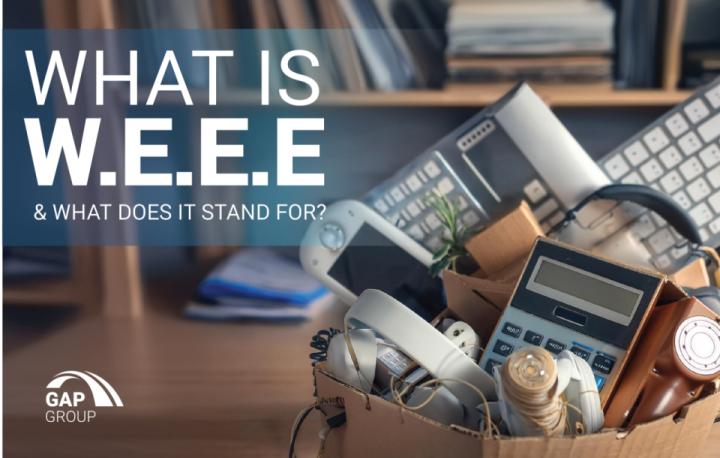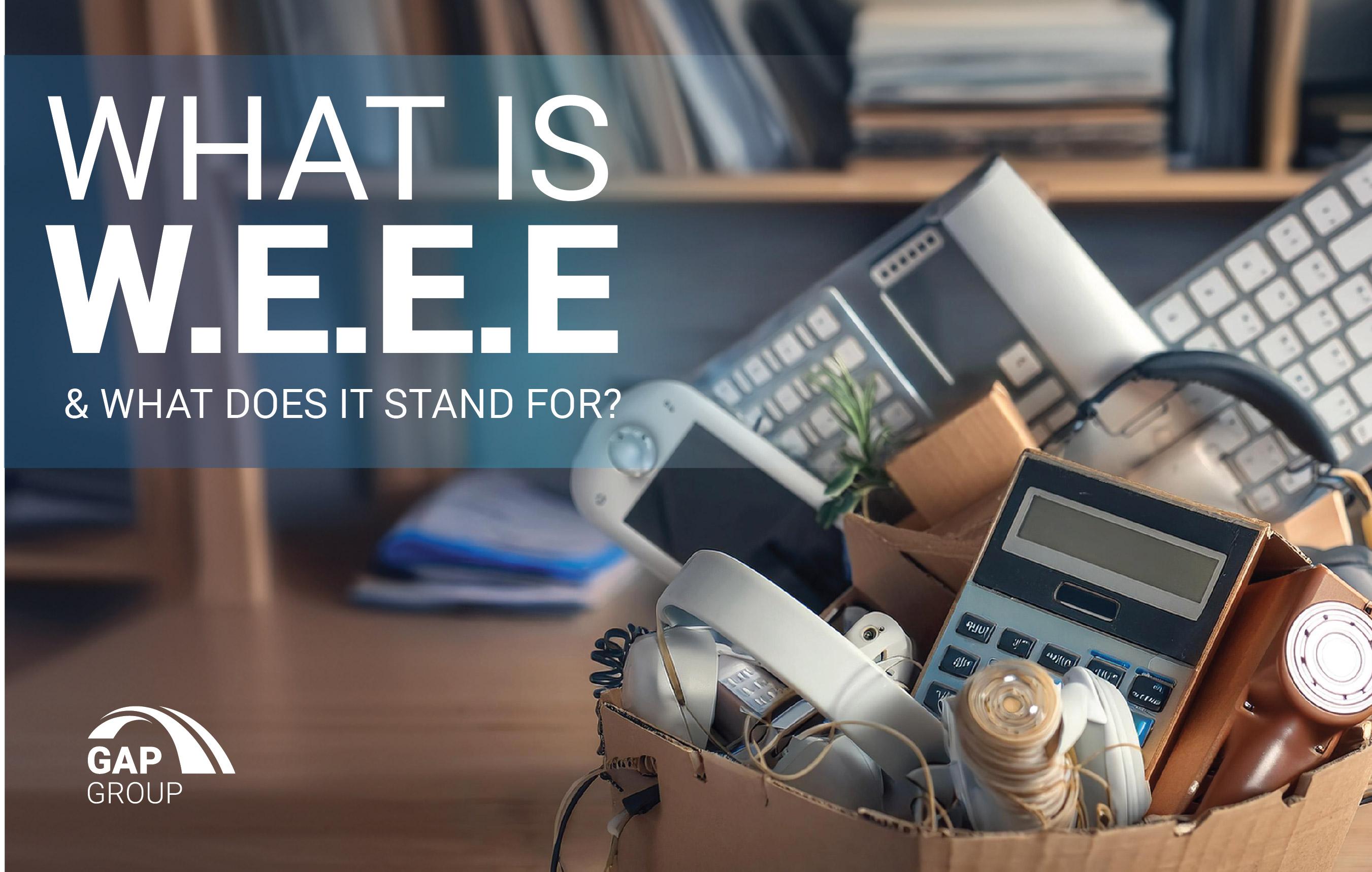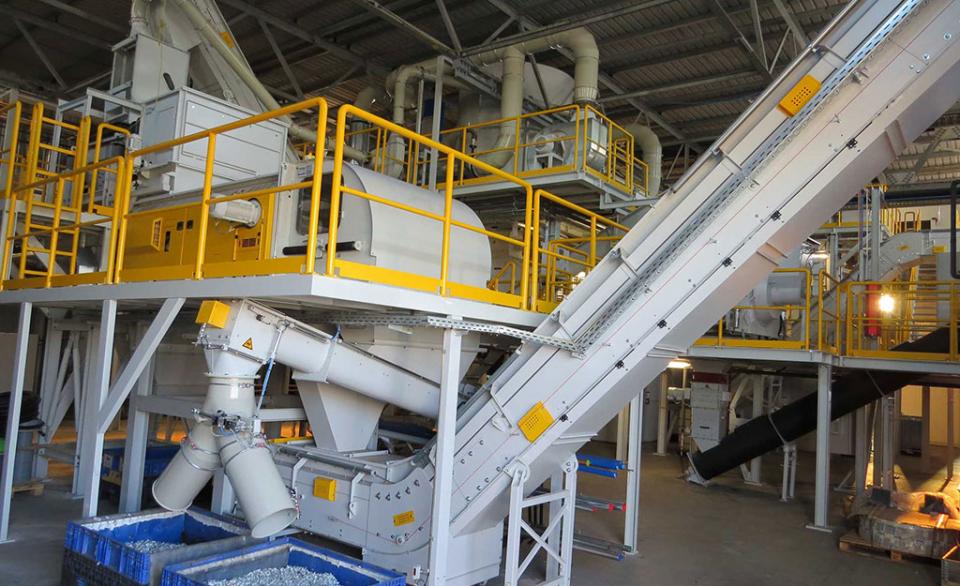What is WEEE?
In today’s fast-paced technological world, the turnover of electronic devices is rapid, leading to an ever-increasing amount of waste electronics, or WEEE. The proper disposal of this waste is governed by the WEEE regulations (1), but what exactly does WEEE stand for, and why is it so important?
What Does WEEE Stand For?
WEEE stands for Waste Electrical and Electronic Equipment. This term refers to any discarded electronic device, including household appliances, IT equipment, mobile phones, basically anything with a battery, cable or plug.
The technology in this sector is advancing and devices are becoming obsolete more quickly, meaning the volume of WEEE is rapidly growing, making it a critical environmental issue to manage it correctly.
In the UK, the WEEE Regulations were introduced to mitigate the environmental impact of this waste. These regulations set out the responsibility for the safe disposal and recycling of electronic waste, ensuring that valuable materials within are recovered whilst hazardous substances are managed safely.
The Environmental Impact of WEEE
Improper disposal of WEEE poses severe risks to both human health and the environment. Electronics often contain harmful substances like lead, mercury, and cadmium, and when these items are dumped in landfills, toxic substances cannot only cause long-term damage to ecosystems, but cause fires that endanger everything around them. The number of electrical and battery fires are growing (2), and to combat these, WEEE needs to be recycled correctly.
Beyond the immediate dangers, the accumulation of WEEE contributes to resource depletion. Many of the materials used in electronic devices, such as precious metals and rare earth elements, are finite. Recycling WEEE allows these materials to be recovered and reused, reducing the environmental damage caused by their extracting them from the planet.
WEEE management also plays a significant role in the effort to combat climate change (3). According to Material Focus, a UK-based organization dedicated to tackling WEEE, "recycling old electricals is essential for saving valuable resources and reducing carbon emissions (4), meaning recycling electrical items is more important than ever to ensure a better environment for future generations.
GAP Group North East’s WEEE Solutions
GAP Group NE are at the forefront of WEEE management in the UK, with our award-winning recycling facility. Our fridge recycling plant is one of only 3 plants in the United Kingdom to achieve one of the highest accolades in recycling, the WEEELABEX Certificate (5). In 2025, GAP Alba will open a new fridge and insulation panel recycling facility near Perth in Scotland. It will be able to recycle up to 700,000 fridges and freezers each year and we will apply for WEEELABEX accreditation. The new facility will create up to 70 new jobs and help to reduce the carbon impact of recycling Scotland’s cooling appliances.
GAP Group North-East has the capacity to recycle up to 50,000 tonnes of small mixed WEEE (anything from a kettle to a lawn mower) at our Gateshead facility. We can collect material from your site or office or accept deliveries from you. All you need to do is give us a call or send us an email and we will solve your problem.
As part of our B2B service we collect, recycle and reuse WEEE of all kinds. After we have separated the metals from the plastics in the material, we process the plastics in our £5m polymers separation plant and then send the reusable material to companies that can make products from it. Your old hair dryer could end up being part of the next electrical item you buy. By doing this we are all helping to create a sustainable circular economy.
At GAP we offer a range of WEEE solutions tailored to help businesses and individuals manage their electronic waste. We provide customers with an easy way to ensure that they comply with appropriate environmental standards and meet their sustainability goals in a cost effective and fully compliant way.
GAP's services include:
Collection & Disposal of Electrical Items: GAP provides an efficient and hassle-free collection service for all types of electrical and electronic waste. Whether you’re a business looking to dispose of outdated IT equipment or clearing out old appliances, GAP ensures your WEEE is handled responsibly.
Advanced Recycling Processes: GAP's recycling facilities are equipped with cutting-edge technology designed to maximiSe the recovery of valuable materials from electronic waste. By ensuring that as much material as possible is recycled, GAP supports the circular economy and helps conserve natural resources.
WEEE Boxes & Storage Tubes: Convenient WEEE storage solutions, including specialised boxes and tubes for safely collecting and disposing of vapes, batteries, and lamps. These various sized containers are designed to help easily manage electronic waste, ensuring that materials are handled in an environmentally friendly way.
WEEE, or Waste Electrical and Electronic Equipment, represents a growing challenge in the world. However, with the right approach, we can conserve valuable resources, protect our environment and protect ourselves.
GAP Group is leading the way in providing sustainable WEEE solutions that not only ensure regulatory compliance but also contribute to a healthier planet. By choosing GAP’s solutions, you’re making a responsible choice that benefits your business, your community, and the planet. Contact GAP today for a better tomorrow.
References:
1. https://www.gov.uk/guidance/regulations-waste-electrical-and-electronic-equipment
4. https://www.materialfocus.org.uk/weee-regulations/




